France is buzzing during the fall rentrée. King Charles and Queen Camilla spent two days in Paris in a blur of ceremony and bonhomie. The Rugby World Cup is being played everywhere. It’s Fashion Week. Museums are busting with popular exhibitions, and Pope Francis was in Marseille ove the weekend, preaching and speeching.
It’s a reminder of the full life Charlie and I live here, whether or not we attend the actual events. I reentered that full life a few days ago with some trepidation, after six months of enforced absence for family reasons. Would I have reverse culture shock? Forget my French? Be overwhelmed by noise and city streets? Miss the ease of small-town American life?
None of those fears was realized. I’ve dropped back into my normal groove as if I had never been gone, reacting to my adopted city just as I always do: With joy at the parts I love and humor at the parts I don’t.
Chuckling at badly translated signs, for instance.
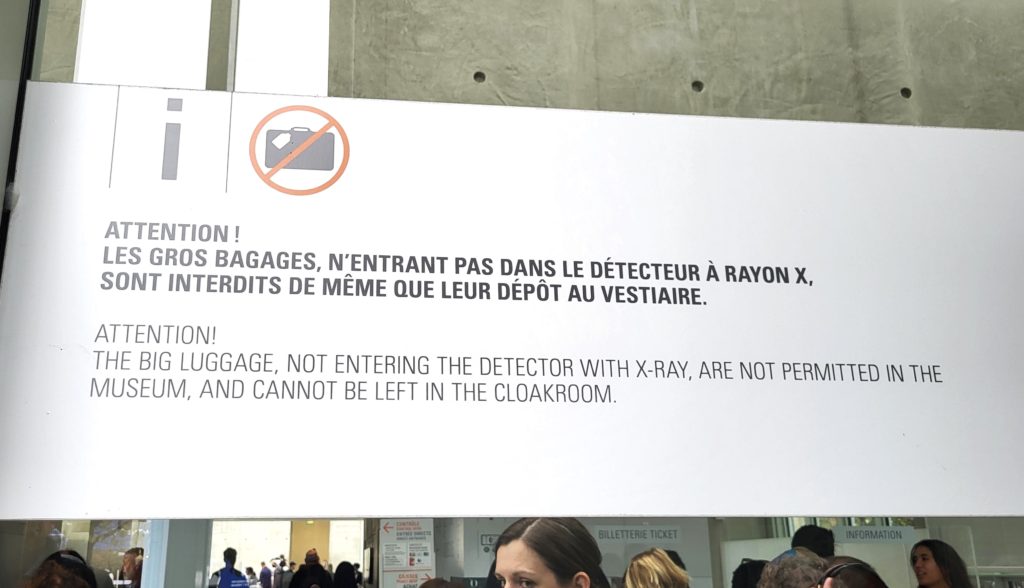
I’m appreciating, deeply, the health care system and les petits soins – those little services that keep a girl going. In one week I perfected or confirmed the perfection of my feet, my nails, my hair, my internal lady organs and my skin.
I was especially happy about the hair. I have been going to Alain for about 25 years, at two different salons. Until this American sojourn, no one except him or someone in his establishment had cut my hair since I started seeing him. The people who take care of me in the U.S. are very nice. But in Alain’s place I was at home.
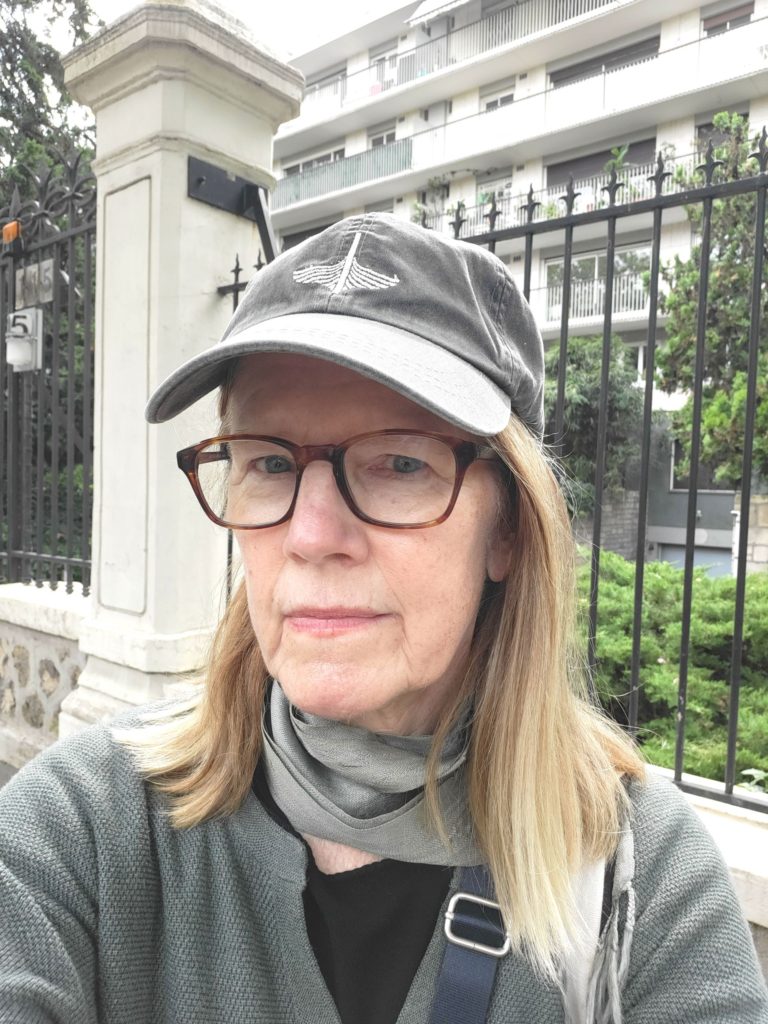
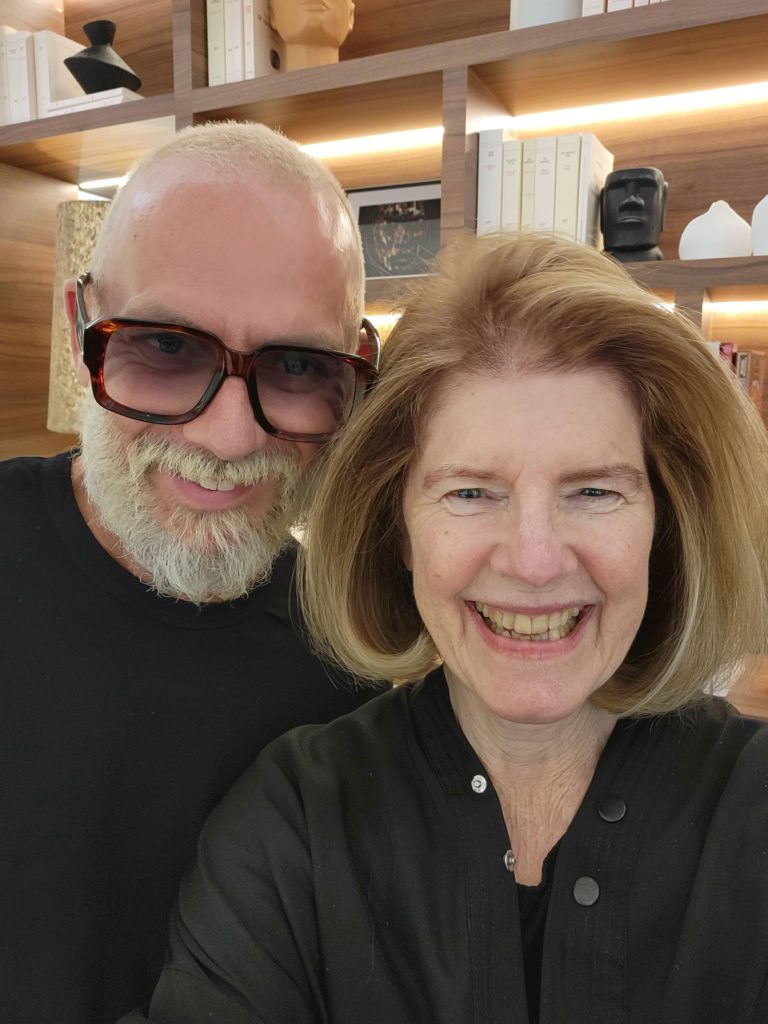
While I coped with jet lag, I spent a lot of time watching television coverage of the Charles and Camilla visit, and found it wonderfully paradoxical. A country that decapitated its king and trumpets its “republican values” treats a British monarch like….well, like royalty. President Emmanuel Macron was at Charles’s side during almost all of his two days in Paris, whether laying a wreath at the Arc de Triomphe…..
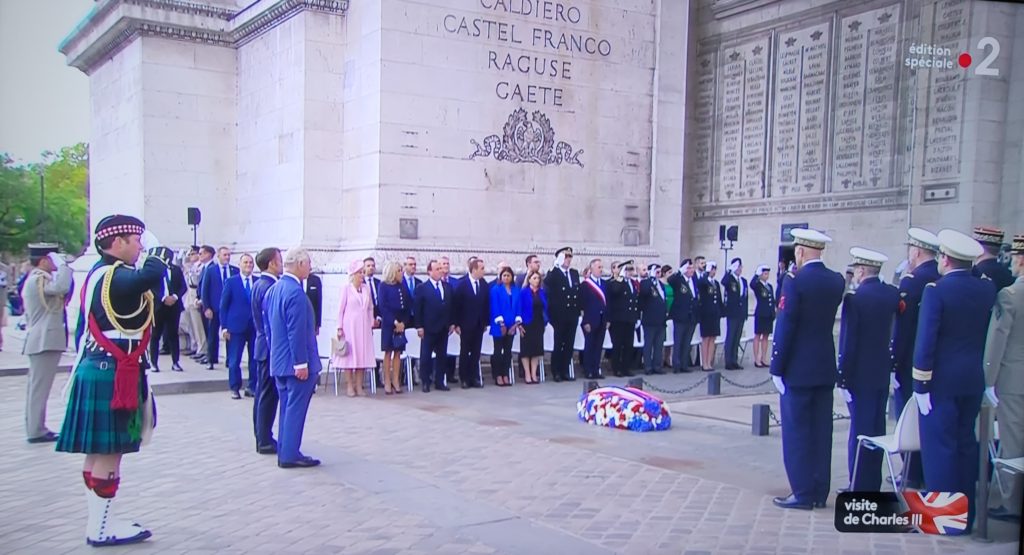
…or supping with more than 150 distinguished guests at the palace of Versailles (speaking of the lessons of history).
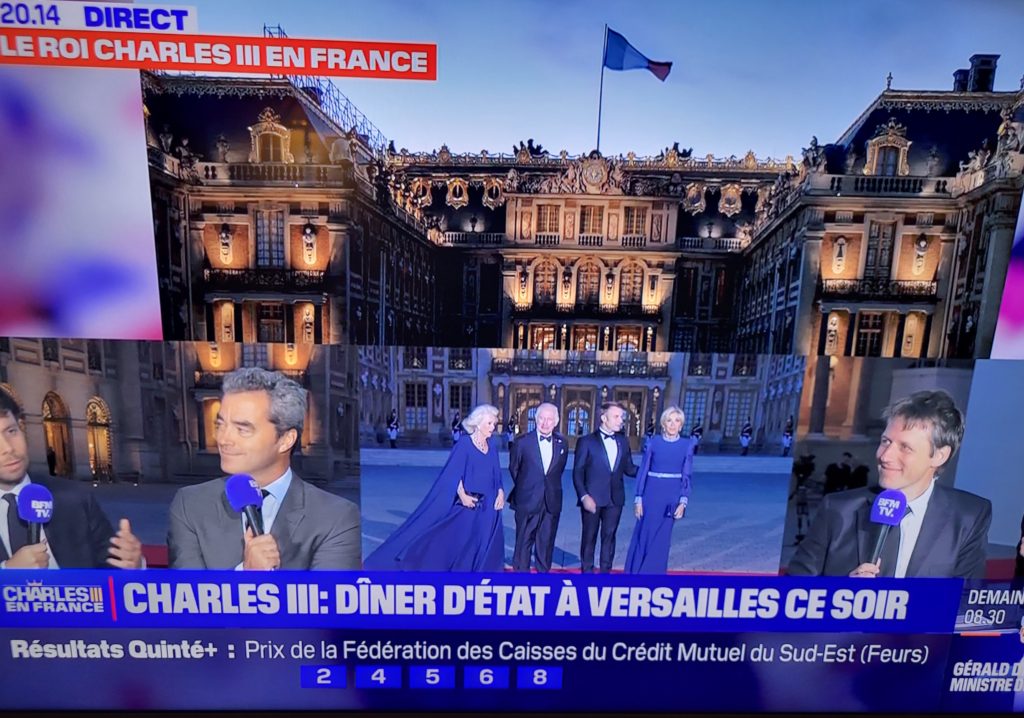
Much of the media coverage was of the what-do-they-think-about-us variety. Of special interest was the French-speaking ability of the various British royals, ranging from Elizabeth’s fluency to Charles and Philip’s competence to Prince William’s fumbling syllables.
The public reception for their majesties was overwhelmingly positive, including a one-minute-plus standing ovation after Charles’s speech to the French Senate. The only crank was one historian who deplored the gray tablecloth at the Versailles dinner as “an attack on four centuries of French savoir-vivre.”
Dîner d’apparat en l’honneur du roi d’Angleterre Charles III dans la galerie des Glaces du palais de Versailles.
Indépendamment de tout jugement sur l’opportunité d’une telle réception dans le contexte actuel, on déplorera la faute de goût absolue de la table dressée !
Un… pic.twitter.com/rSHoSTbMqz— Eric Anceau (@Eric_Anceau) September 20, 2023
I also enjoyed a visit to the Modigliani exhibit at the Orangerie and got a glimpse of the Rugby World Cup fan center at the Place de la Concorde. Perhaps because of the rain, it looked to have fewer attendees than the exhibit, even though France is one of the favorites to win. It might surprise people to know that rugby is very popular here, especially in the south.
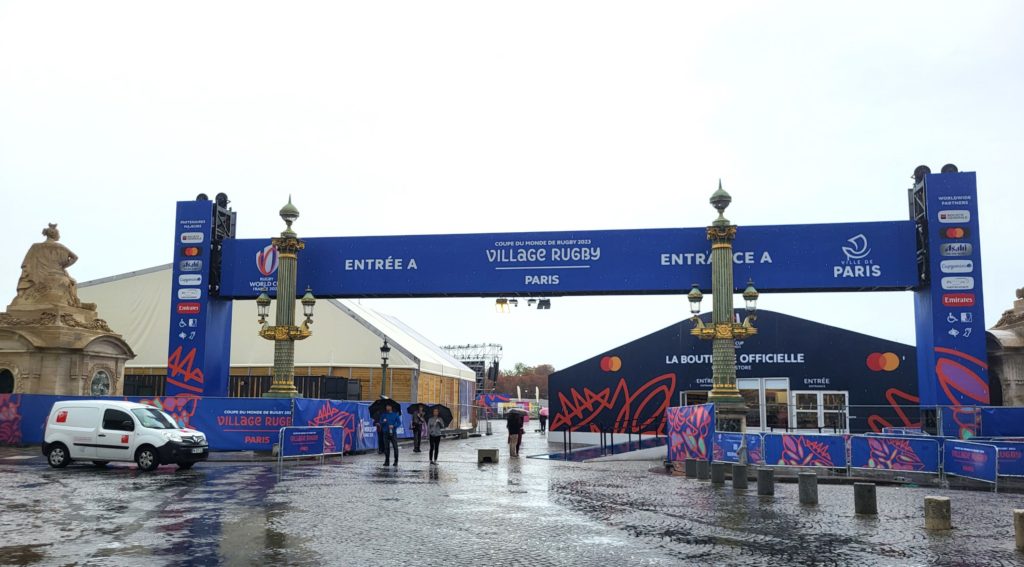
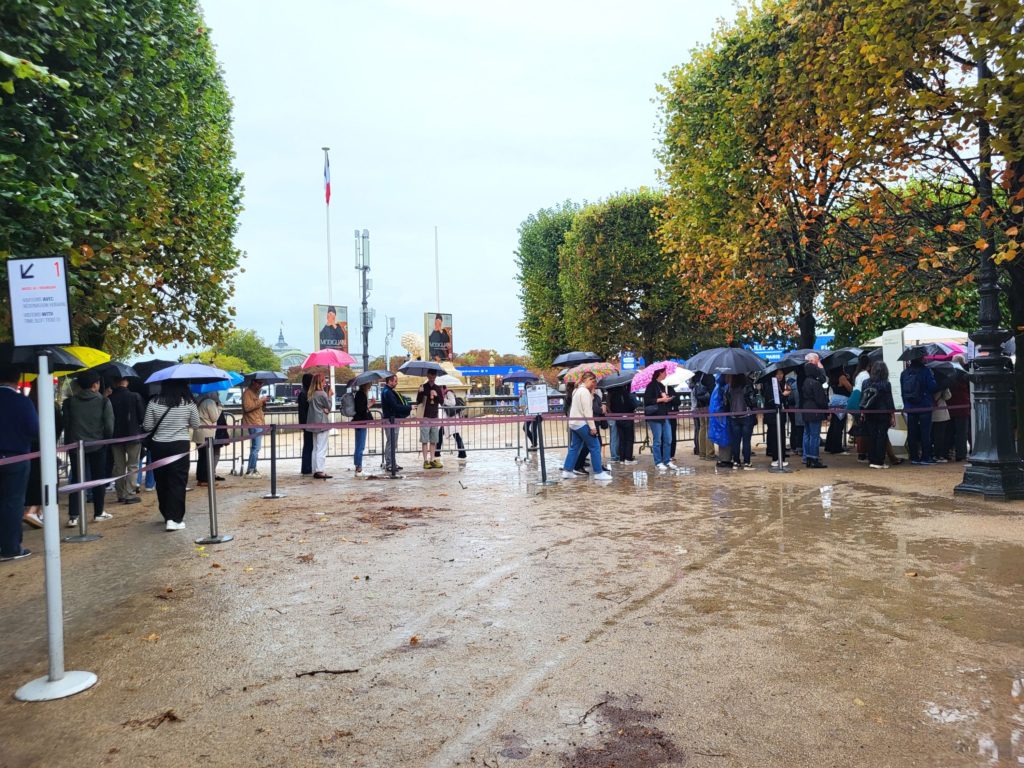
Then it was back home to alternate between napping and watching the TV coverage of Pope Francis’s visit to Marseille. Again, many paradoxes. The pontiff, who has spoken out often against the mistreatment of migrants who come to Europe’s shores, touched down in France during a week that had seen about 10,000 migrants from Tunisia land on the Italian island of Lampedusa. Interior Minister Gérald Darmanin had declared that there was no way France would accept any of them. It was part of the government’s general move to the right and against migration.
Francis has long called for better treatment of migrants. He said in Marseille that the “Mediterranean, cradle of civilization, is becoming the tomb of dignity” and a “sea of death.” A day later, he called on countries to “welcome, protect and integrate” migrants. In the audience and applauding: Gérald Darmanin.
Macron, for his part, was all smiles as he met with the pontiff privately. But the meeting didn’t stop the president from saying on television a day later, quoting former prime minister Michel Rocard, that France “cannot take in all of the world’s misery.”
Mon interview au 20h de TF1 et de France 2. https://t.co/wHjopTjekH
— Emmanuel Macron (@EmmanuelMacron) September 24, 2023
The president also attended the Mass the pope celebrated for 60,000 people at Marseille’s stadium. This in a country that has observed strict separation of religion and state since 1905.
Perhaps it depends on the religion? At the end of August the Education Ministry prohibited students from wearing an abaya, a full-length robe worn by Muslim women, at school. The rationale was that it was a religious symbol, thus forbidden in public institutions, although no Muslim text mentions the garment. The New York Times has a good analysis here, and here is another good one.
Oh, and Saturday there were street demonstrations all over France as thousands of people protested police violence. The one in Paris turned violent itself as a fringe group broke windows at a bank and attacked a police car with police officers inside it.
Truly, nothing has changed since I went away.
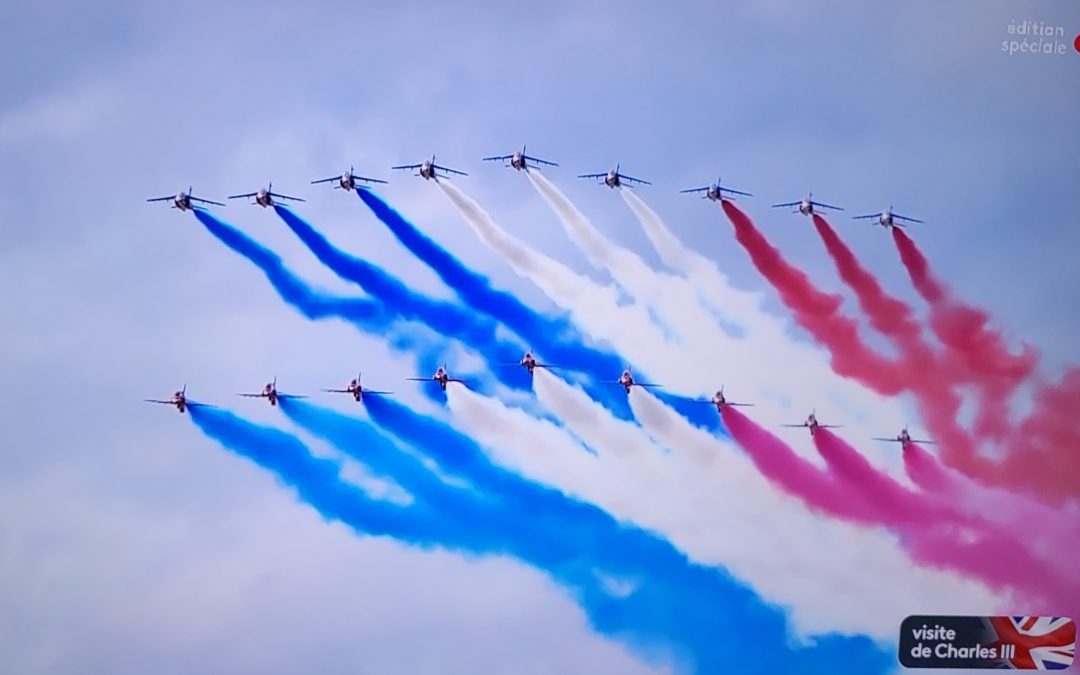
plus les choses changent, plus elles restent les mêmes, non ?
Exactement! Or, as a French friend of mine wrote on Facebook, Plus ça change, moins ça change.
Thank you Anne for this delightful ode to our adopted country (though much longer for you than me)…. a wonderful reminder why I’ve chosen to live here…..merci!
Thanks so very much, I’m really glad you liked it!
Welcome back! I can relate to your ‘comfort zone’ chez Alain – I recently realized that the same Parisian coiffeuse has been cutting my hair for the last 27 years!
Belatedly, many thanks! Yes, there is enough stress in life without having to break in a new hair person…..